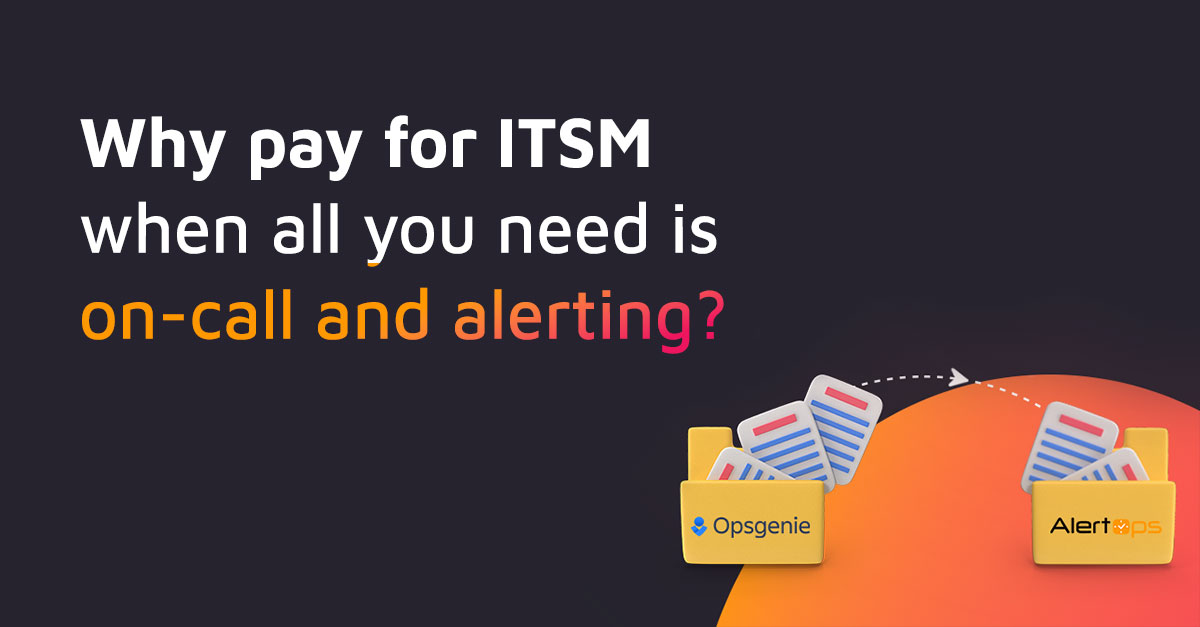IT service management (ITSM) refers to the management of IT services that a company uses to deliver value to customers. It involves everything from planning and managing IT system changes to ensure that these changes don’t disrupt a business’ day-to-day operations to fixing IT problems when they arise.
ITSM also requires IT teams to look beyond their technical expertise and find innovative ways to manage all of the IT services at their disposal.
Ultimately, there are many reasons why ITSM is crucial for businesses of all sizes and across all industries. These reasons include:
1. ITSM drives IT efficiency
In some instances, businesses use third-party vendors that provide cloud services, managed services and other technical services. Working with a variety of third-party vendors helps businesses spread out risk. At the same time, keeping track of all IT activities can be exceedingly difficult due to the fact that different IT tasks are performed by different vendors at different times. And if even a single IT task gets missed along the way, a business could suffer an outage.
ITSM frequently helps a business build an effective IT strategy. With this plan in place, a business can simplify the management of all of its IT services. And as a result, this business can limit the risk of outages, downtime and other potentially devastating IT incidents.
2. ITSM promotes business alignment
Specialized IT services are available that are designed exclusively for certain aspects of IT. For example, a business may deploy cloud storage services to secure its sensitive data in the cloud, along with managed security services to identify and address cyber risks. There is no lack of best-in-class IT services, but getting these services to operate together may be tricky at times. Thankfully, there’s ITSM, which promotes service alignment across a company.
ITSM requires IT managers to consider IT services, how they work and whether they correspond to a company’s overall strategy prior to deployment. That way, IT managers can avoid the risk of implementing IT services that fail to support a business’ goals. Conversely, IT managers will perform a full analysis of IT services, weigh their pros and cons and determine which services can be seamlessly integrated into a company’s everyday operations.
3. ITSM supports regulatory compliance
IT teams often are tasked with managing large amounts of critical data. Meanwhile, for IT teams that work in highly regulated industries like financial services or healthcare, these teams also must comply with various regulatory guidelines. Additionally, businesses, their staff, and their clients may suffer significantly if IT professionals don’t keep up compliance.
Let’s face it – no business wants to be the next Equifax, Target or other globally recognized brand to suffer a data breach. Fortunately, there’s ITSM, which helps businesses prioritize regulatory compliance and data security. ITSM promotes increased visibility and control of data management processes and systems. It enables IT managers to follow regulatory guidelines for data management and security, and as such, limit the risk that a company will suffer compliance violations.
4. ITSM reduces the incident lifecycle
Reducing the incident lifecycle is a top priority for many businesses. If IT teams understand incident patterns and trends, they may be better equipped than ever before to stop these problems from happening. Perhaps best of all, IT teams can use incident data to learn from past mistakes and speed up incident response. This may help a business provide better service to its customers, as well as stop incidents that otherwise may prevent a company from achieving its goals.
ITSM helps IT teams collect and analyze incident data and learn from it consistently. It generally leads IT teams to establish metrics to learn about the incident lifecycle and find ways to reduce it. Additionally, it fosters collaboration and encourages IT team members to work together to understand why incidents occur.
5. ITSM drives customer satisfaction
There is a strong correlation between customer satisfaction and revenue growth. If customers are satisfied with a business, they may choose this company over others. On the other hand, customers who encounter frequent service problems with a business are likely to explore alternatives.
ITSM is a primary driver of customer satisfaction, and for good reason. If IT teams allocate the necessary time and resources to monitor and manage IT services, they can lower the risk of incidents. This means customers won’t have to worry about service interruptions or other problems. Conversely, customers can receive outstanding support from a company, and this business can boost its customer satisfaction levels both now and in the future.
Going forward, ITSM will continue to play an important part in the success or failure of businesses around the globe. If a company uses a state-of-the-art alert monitoring system in conjunction with ITSM tools, this business could take its ITSM efforts to new heights.
Check Alertops for More Information.



